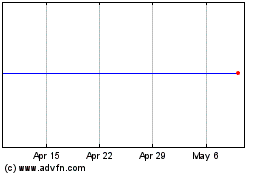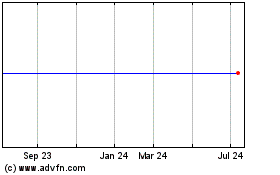By Paul Page
Sign up:With one click, get this newsletter delivered to your
inbox.
Amazon.com Inc. will use its blockbuster acquisition of Whole
Foods Market Inc. to become a major player in the bricks-and-mortar
retail sector, promising new upheaval in an industry the online
giant has already transformed with its e-commerce expansion. The
$13.7 billion purchase gives Amazon hundreds of stores in prime
urban locations that could serve as beachheads for in-store pickup
and its distribution network. The WSJ's Laura Stevens and Annie
Gasparro report it would make Amazon an overnight heavyweight in
the $674 billion grocery business. That segment is changing as
consumers ramp up purchases online and a new generation of startups
remake food delivery to homes. Online grocery distribution is
logistically complex, often requiring fast delivery of cold items
as part of large orders on routes where stops are spread far apart.
Amazon has struggled to gain a foothold there because it has a
meager physical presence and shoppers still largely prefer to shop
for food in stores, giving Amazon little opportunity until now to
spread its costs across a broader network.
In adding Whole Foods to its business, Amazon may be gaining
critical new nodes for its distribution network. Adding more than
430 stores, most of them in high-income, densely-populated areas,
will give the online giant sites perfectly positioned to serve as
pickup and delivery hubs for urban customers, WSJ Logistics
Report's Erica E. Phillips and Jennifer Smith write. Amazon has
been building out a network of urban warehouses, sites that are far
smaller than the company's sprawling distribution centers on the
outskirts of cities and that are aimed at providing one- or
two-hour delivery to its Prime Now customers. Now, Amazon will have
real estate to expand its neighborhood network by a factor of at
least five. It also brings Amazon access to the Whole Foods
refrigerated storage areas -- potentially saving significant costs.
One outstanding question will be whether Amazon seeks to change
relationships with Whole Foods' suppliers, many of them niche
providers with limited distribution networks.
One of the biggest players in the logistics
mergers-and-acquisitions marketplace is back in the hunt for new
targets. XPO Logistics Inc. CEO Bradley Jacobs says the company is
again looking for acquisitions, WSJ Logistics Report's Jennifer
Smith writes, after taking nearly two years off to digest the
numerous purchases that made XPO the fastest growing logistics
operator in North America. XPO has put its time on the sidelines to
work: the company has reported four straight profitable quarters
and its stock price has more than doubled in the past year,
signaling growing investor confidence that XPO can deliver
efficiencies and growth from its many additions. Mr. Jacobs says
he's most interested in larger targets, although the company may
look at smaller, strategic targets. That could help revive
logistics M&A activity that's been mostly quiet since a series
of big buys that consolidated the logistics market in 2015.
E-COMMERCE
Wal-Mart Stores Inc. keeps adding pieces to its growing online
business while the retailer's biggest competitor tries to transform
the e-commerce landscape. Minutes after Amazon's blockbuster deal
was announced, Wal-Mart completed a $310 million purchase of online
menswear retailer Bonobos, the WSJ's Sarah Nassauer and Imani Moise
report, the latest in a series of small acquisitions aimed at
remaking Wal-Mart's web sales presence. The purchase gives Wal-Mart
access to a brand that exists primarily online, as well as talent:
Bonobos founder Andy Dunn will head Wal-Mart's efforts to build
online, direct-to-consumer brands. The buys of niche online chains
such as Bonobos and Moosejaw chains that appeal to wealthier or
more fashion-forward shoppers are aimed at helping Wal-Mart reach
beyond its core customers. Wal-Mart has also ramped up efforts to
use its stores to ship online orders, but it's unclear whether the
company will try to blend the supply chains of its new acquisition
targets with its broader network of big-box stores.
General Motors Co. is starting to reroute parts of its North
American supply chain from Mexico to the U.S. The automaker is
opening a supplier park near its Arlington, Texas, sport-utility
factory, bringing some 600 jobs and a higher concentration of
American-made parts in Chevrolet Suburbans and Cadillac Escalades.
GM is one of several manufacturers rethinking the wisdom of
shipping intermediate products through far-flung supply chains, the
WSJ's Mike Colias and William Mauldin report. Global parts networks
have long been seen as critical to cutting costs, but more
companies are concluding they're a risky bet due to political
shifts, protectionist measures and natural disasters. The auto
maker says its new move was planned before President Donald Trump
criticized GM's Mexican imports, and the new supplier park will
trim logistics expenses and bring other gains from proximity of
parts to the assembly plant.
American agriculture exporters are already feeling the impact of
friction between the U.S. and Mexico over trade. Mexican imports of
farm commodities including corn, soybean meal and chicken are in
steep decline, the WSJ's Jacob Bunge reports, signaling that Mexico
is buying food from a wider range of countries and reducing
reliance on the U.S. That's rippling across American farms: Mexico
is the third-largest customer for U.S.-produced farm goods overall,
accounting for $18 billion in trade last year, and it's the No. 1
customer for corn. Mexico's declining purchases of some commodities
runs counter to the Trump administration's goal to boost U.S.
exports generally, as the White House moves to renegotiate the
North American Free Trade Agreement in a bid to revive U.S.
manufacturing. Now, however, U.S. officials worry the uncertainly
around trade could jeopardize a market that last year bought
roughly 13% of total U.S. agricultural exports.
QUOTABLE
IN OTHER NEWS
Authorities are investigating the collision between a U.S. naval
destroyer and an NYK container ship near Japan that left seven
American sailors dead. (WSJ)
A closely-watched gauge of U.S. consumer sentiment dropped in
early June to its lowest level since last November. (WSJ)
President Trump partially rolled back Obama administration
initiatives that opened up U.S relations with Cuba. (WSJ)
Boeing Co. launched a new version of its narrowbody jet, called
the 737 Max 10, to regain market share lost to Airbus SE. (WSJ)
U.S. poultry production is declining as the percentage of eggs
hatching chicks falls at a steep rate. (WSJ)
The U.S. Justice Department cleared the way for the delayed
merger of Dow Chemical Co. and DuPont Co. (WSJ)
The loss of baby-product sales to online competitors and the
need to clear leftover holiday inventory pushed Toys "R" Us to a
$163 million loss last quarter. (WSJ)
Japanese car companies say they are prepared to weather a
bankruptcy of supplier Takata Corp. (WSJ)
An investigation shows Southern California port trucking
companies are using onerous debt terms to force truck drivers into
working long and largely unpaid work hours. (USA Today)
Truckers at Southern California ports fear the state's new
zero-emissions efforts will cost them their jobs. (Long Beach Press
Telegram)
The head of the Port of Los Angeles says China Cosco Shipping
Corp. is diverting cargo to Long Beach because of easier
environmental restrictions. (Long Beach Daily Breeze)
Japanese industrial robotics manufacturers are scrambling to
boost output under growing demand from Chinese factories. (Nikkei
Asian Review)
The challenge of managing large amounts of data remains a major
hurdle to adopting artificial intelligence in managing supply
chains. (Supply Chain Quarterly)
Moody's upgraded rating on Port of Oakland bonds and gave A2
ratings on the port's upcoming series of refunding revenue bonds.
(Logistics Management)
California-based Lineage Logistics acquired European cold
storage provider Partner Logistics, its first foray into
international supply chains. (The Loadstar)
Taizhou Shipping, the bankrupt dry bulk subsidiary of Zhejiang
Shipping Group, sold the last of its four ships to domestic Chinese
operators. (Splash 24/7)
Amazon is planning to place a regional fulfillment center in
Utah. (Orem Daily Herald)
Belgian railroad Lineas is starting a dedicated "beer train"
from an AB inBev brewery to a regional supplier. (Rail Freight)
ABOUT US
Paul Page is deputy editor of WSJ Logistics Report. Follow him
at @PaulPage, and follow the entire WSJ Logistics Report team:
@brianjbaskin , @jensmithWSJand @EEPhillips_WSJand follow the WSJ
Logistics Report on Twitter at @WSJLogistics.
Write to Paul Page at paul.page@wsj.com
(END) Dow Jones Newswires
June 19, 2017 06:37 ET (10:37 GMT)
Copyright (c) 2017 Dow Jones & Company, Inc.
Whole Foods Market, Inc. (NASDAQ:WFM)
Historical Stock Chart
From Mar 2024 to Apr 2024

Whole Foods Market, Inc. (NASDAQ:WFM)
Historical Stock Chart
From Apr 2023 to Apr 2024
